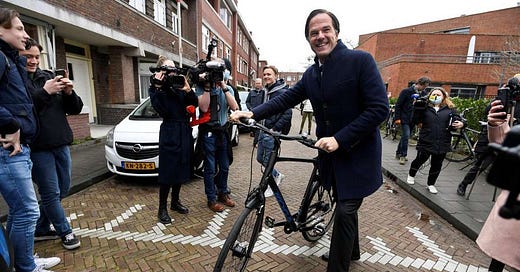Is Europe course-correcting after taking a hard-right turn?
Now that the Netherlands’ election results have been finalised and officially published, chances are much of the world will lose interest in what happens next. After all, the incumbent won a fourth term after a dull campaign in the midst of the coronavirus pandemic and the process of forming a coalition government in the Netherlands is long and protracted. Is there any reason to pay further attention to Dutch politics?
As a matter of fact, yes. The Dutch election is reason to think a new political season may be coming in Europe. It holds the promise of a springtime of hope and not just because of who won. Prime Minister Mark Rutte’s success indicates voters’ preference for stability and the political middle over the bromides and wild-eyed promises of the far right.
But it is the surprise runner-up — the socially liberal, pro-EU D66 party — that tells a further good news story. In becoming the second-largest party in the Dutch Parliament, D66 will displace Geert Wilders’ Eurosceptic, ant…
Keep reading with a 7-day free trial
Subscribe to This Week, Those Books to keep reading this post and get 7 days of free access to the full post archives.





